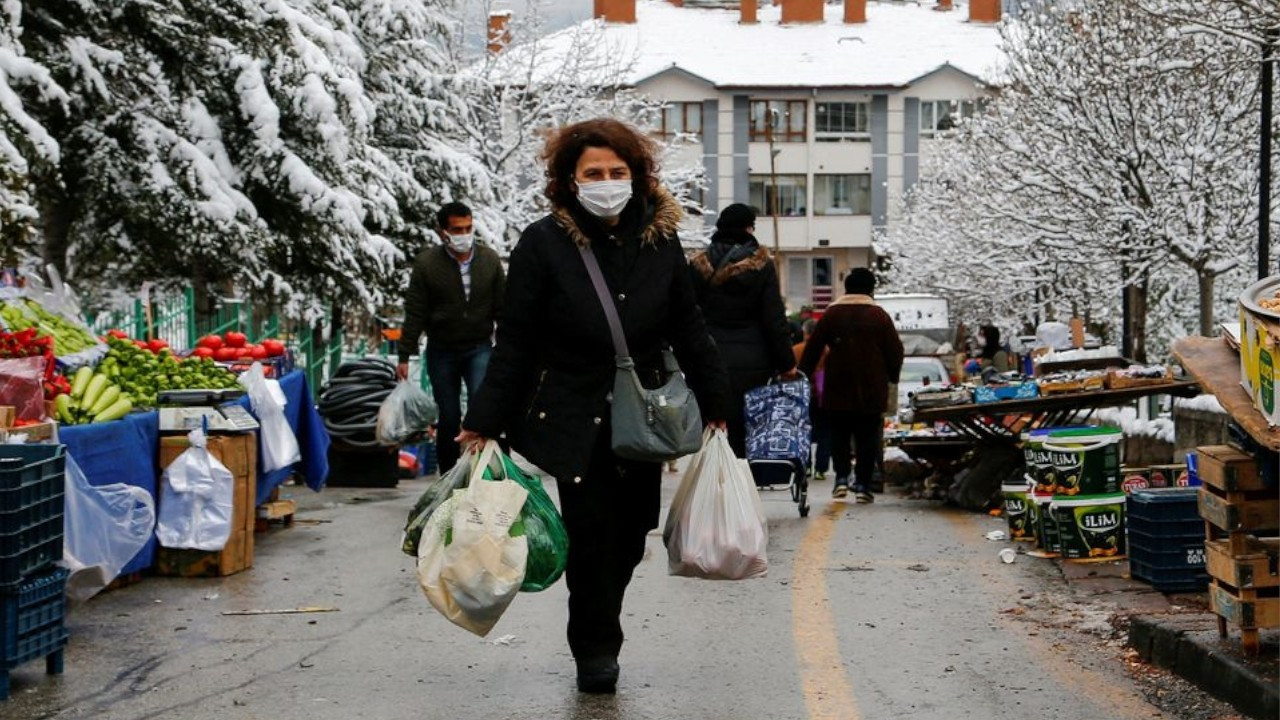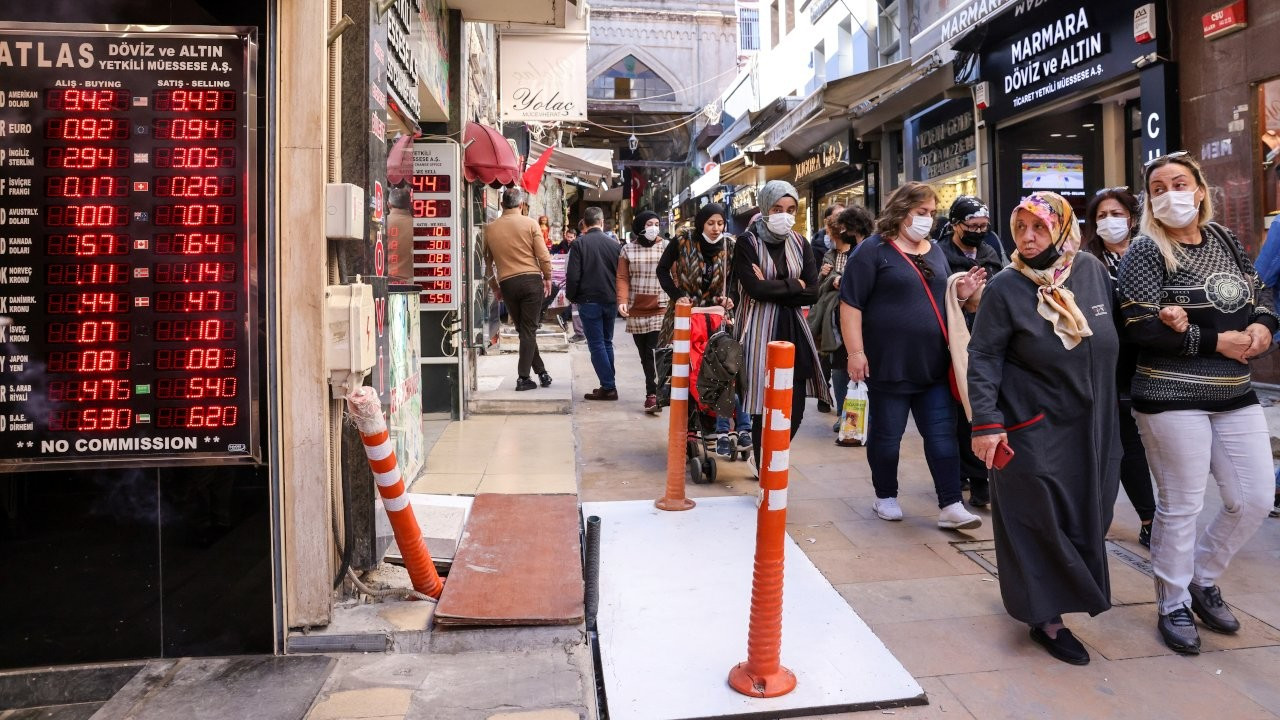Brain Drain in Turkey: amidst domestic turmoil, educated professionals flee to Germany
As a result of sky-high inflation and cost of living in Turkey, along with political and economic strife, highly-educated workers in Turkey are fleeing for Germany. Many find it difficult to see a path back home.
Aynur Tekin / DUVAR
Inflation in Turkey is at its highest point in two decades, the cost of living is skyrocketing, and individual rights and dignities in the country are in a stranglehold. As a result, unprecedented numbers of educated workers are fleeing the country for European countries such as Germany, and few of those left believe they will ever come back.
Alev Yıldırım, a 34-year-old political science graduate from Ankara University, moved to Berlin a year and a half ago on a Jean Monnet scholarship. While living in Turkey, she was a specialist in the Brazilian embassy, enjoying the perks of a mid-to-high level job. She had vacation days and a decent salary. However, she says, after 2013 – the year of the Gezi Park protests – everything went downhill.
“When I started my profession, my salary was valued at 1,500 euros,” Yıldırım said. “It fell to one thousand euros by 2018. I had a certain standard of living, but I fell below that. There was also the despair of living in Turkey…I was endlessly hearing bad news. The breaking point for me was the high levels of femicide in Turkey.”
She moved to Berlin in September of last year and admits that the transition has not been easy. She arrived alone in the city in the middle of the Covid-19 pandemic and found it very difficult to adjust.
“It takes constant effort. You need to learn the language, you need to learn the culture. I saw a lot of people who couldn't do their job here,” she said. “For example, a person who can work at the United Nations in Turkey works in a call center here.”
She says that she and her friends all experienced depression last winter. Leaving Turkey for Europe does not mean you will have a rosy life, she says.
Others who left Turkey for Germany, like Aycan Apak, who has both undergraduate and masters’ degrees from the Department of Molecular Biology and Genetics at Middle East Technical University (METU), didn’t intend to stay in the country. He moved to Berlin eight years ago to do a doctorate, but couldn’t afford to study after his first year. He left the program and began working. Now, the country where he was born and raised feels foreign to him.
“Lately, […] my sense of belonging to Ankara, which I love so much, has lessened. I have begun thinking, 'I no longer belong to this city, I do not belong to this society,’” he said.
Apak says that though he has experienced difficult times in Germany, he is happy to live in Berlin. Work culture, he says, is deeply satisfying. Personal space is respected and probing questions in the workplace are taboo.
Further, he says, merit is respected in Germany. In Turkey, many have long discussed a system of employment that values connections and relationships over professional merit. In Germany, on the other hand, Apak says that employers hire people based on standardized interviews and evaluations.
“I applied for a position on the German team at my former workplace. Two people applied for this position. One was me and the other was a German native speaker with a Ph.D. We took the same written and oral exam and I got the position because I scored better than him on the written exam,” he said.
He further said that despite stereotypes, he has not experienced discrimination in Germany. He actually finds that it is easier to make discriminatory statements in the workplace in Turkey than in Germany.
Apak says that a part of him is always connected to Turkey, but that in the current system it would be impossible to return. “In the current situation, there will be no country to return to,” he said.
He said like those “condemned” to live in Turkey, he and other Turkish people in Germany are “condemned” to stay there.
The brain drain from Turkey to Germany is especially pronounced for healthcare workers. Doctors and nurses in Turkey work in a dangerous field - their lives are often threatened by patients and patients' families, and they are forced to work long shifts with little compensation. In recent years, medical professionals have been leaving Turkey in droves for better opportunities abroad.
One of those people is Beyza Uzungece, who used to work as an Intensive Care Nurse in Istanbul. While living and working in Turkey, she would have to work 24-hour shifts and commute two hours each day to the hospital. She was denied hospital transfer closer to her home after the coup attempt of 2016, which she says was the final straw. Four years ago, she applied and moved to work as a nurse in the city of Mainz, in Germany.
Now, she says she works no more than 8-hour shifts, totaling 35-40 hours a week. She no longer feels like her life is at risk, and her purchasing power has grown. She says she feels safe and healthy and is able to afford a healthy lifestyle.
“You can survive without being economically literate,” she said.
Uzungece says that in the wake of the recent currency crisis, she has gained many followers on her YouTube channel, where she documents her experiences. She has heard of many friends and followers beginning to learn German so they can leave the country, too.
(English version by Erin O'Brien)

 Turkey starts 2022 with massive price hikes after inflation surgeEconomy
Turkey starts 2022 with massive price hikes after inflation surgeEconomy Turkey reports annual inflation of 36 percent, highest in two decadesEconomy
Turkey reports annual inflation of 36 percent, highest in two decadesEconomy Erdoğan calls on citizens to keep all savings in lira as currency remains volatileEconomy
Erdoğan calls on citizens to keep all savings in lira as currency remains volatileEconomy